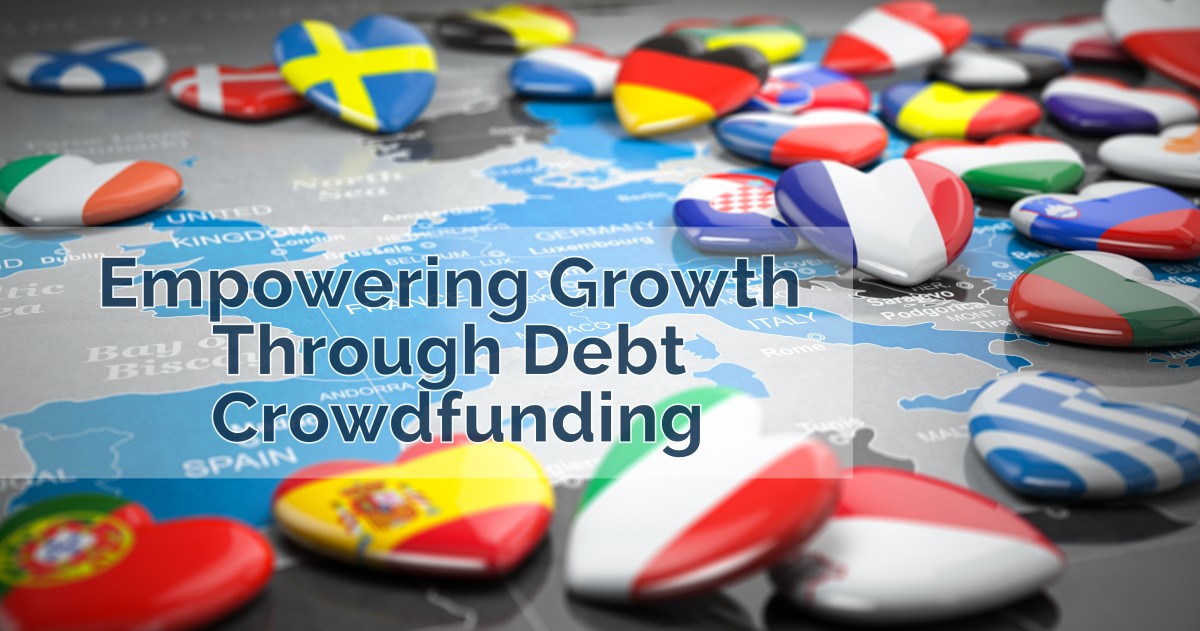Exploring the Potential of Debt Crowdfunding for Online Microlenders in Europe
Debt crowdfunding has become a significant financing avenue for online microlenders across Europe, offering them a way to secure funds without diluting ownership. This model involves both investors and borrowers participating in raising capital. Investors provide the capital by investing in various campaigns, expecting to earn returns through interest payments. Borrowers, including individuals, startups, or businesses, seek funding for their projects or expansion by borrowing from these investors and agreeing to repay the principal with interest over a specified period.
The Appeal of Debt Crowdfunding
For businesses, particularly microlenders, debt crowdfunding provides access to capital without the need to give up equity. This is crucial for companies that want to maintain control over their operations while still obtaining the funds necessary for growth. Investors, on the other hand, are drawn to the potential for higher returns compared to traditional savings accounts or bonds. Additionally, these loans are often backed by business assets, which adds a layer of security to the investment.
Notable Debt Crowdfunding Platforms and Campaigns
Several platforms have emerged as leaders in the debt crowdfunding space, facilitating successful campaigns that have raised significant sums for online microlenders and other small businesses.
- Funding Circle is one such platform, primarily operating in the UK but with a presence in several European countries. In 2020, it facilitated over €5.1 billion in loans, offering investors annual returns ranging from 4% to 7%, depending on the risk profile of the loans. This platform specializes in P2P lending for small businesses, providing a direct link between borrowers and investors.
- Another prominent platform is Lendahand from the Netherlands. This social impact platform connects investors with SMEs and entrepreneurs in developing economies. Typical campaigns on Lendahand raise between €50,000 and €1 million, with promised returns of approximately 3% to 6% annually. The platform's focus on sustainable growth and job creation makes it an attractive option for socially-conscious investors.
- In Spain, Urbanitae enables small investors to participate in real estate projects, raising funds ranging from €100,000 to €5 million per project. Investors can expect returns of around 5% to 8% annually. Urbanitae’s model bypasses the complexities of traditional investment funds, making real estate investment more accessible to a broader audience.
- Winwinner, a Belgian platform, supports SMEs by helping them secure funds through crowdlending. Campaigns on Winwinner typically attract between €100,000 and €2 million, offering returns of about 4% to 6% annually. This platform aims to foster growth by connecting entrepreneurs with potential investors, facilitating mutual benefits and business expansion.
- Lastly, LITA.co in France focuses on impact investing, linking investors with companies that have positive environmental and social impacts. Campaigns on LITA.co often raise between €50,000 and €1.5 million, with annual returns ranging from 4% to 6%. This platform appeals to investors who are interested not only in financial returns but also in supporting sustainable and impactful initiatives.
Fundraising for Simpleros
Simpleros, a notable microlending company, has successfully raised funds through debt crowdfunding on the platform CrowdedHero. This campaign attracted significant attention from investors, who were drawn to the company's solid business model and promising returns. Simpleros was able to secure €216,000 in funding, which will be utilized to expand its lending portfolio and enhance its technological infrastructure. Investors in this campaign can expect returns of 14.25% annually after taxes, with semi-annual payments over a two-year term. CrowdedHero is unique in Europe for handling tax payments directly, relieving investors of the burden of managing their own tax obligations.
Upcoming Campaign for Wandoo Finance
Wandoo Finance, another prominent player in the microlending space, is preparing to launch a debt crowdfunding campaign on CrowdedHero. This upcoming campaign aims to raise €225000, which will be used to scale Wandoo Finance’s operations across multiple European markets. The company has a track record of robust financial performance and is offering investors returns of up to 11,25% annually. This campaign is expected to attract significant interest from investors looking to diversify their portfolios with high-yield, secure investments. CrowdedHero's approach to managing tax payments directly ensures investors do not need to worry about organizing their tax payments, making the investment process smoother and more attractive.
Benefits and Risks
Debt crowdfunding offers several advantages, such as higher interest rates for investors and non-dilutive capital for businesses. For investors, the potential for higher returns is appealing, particularly in a low-interest-rate environment. Furthermore, the fact that loans are often backed by business assets provides additional security.
However, there are inherent risks associated with debt crowdfunding. The primary risks include the possibility of borrower default, interest rate fluctuations, and platform reliability. Investors can mitigate these risks by diversifying their investments across multiple loans and sectors, conducting thorough due diligence, and understanding the specific terms and conditions of each loan.
Regulatory Landscape and Future Prospects
Regulatory frameworks play a crucial role in ensuring transparency and protecting both investors and borrowers in the debt crowdfunding market. These regulations vary across different European countries but generally aim to promote responsible lending practices and safeguard consumer interests. The recent introduction of pan-European rules for European Crowdfunding Service Providers (ECSP) aims to harmonize the market, allowing issuers to raise up to €5 million across all EU member states, thus boosting the industry’s growth potential.
As technology continues to advance and regulations evolve, the debt crowdfunding industry is poised for significant growth and innovation. This model is expected to become an increasingly important part of the global financial landscape, offering a viable alternative to traditional lending methods and fostering economic growth through enhanced access to capital.
Debt crowdfunding represents a promising opportunity for online microlenders in Europe, providing a flexible and efficient means of raising capital while offering attractive returns for investors. By understanding the benefits, risks, and regulatory environment, both borrowers and investors can navigate this rapidly evolving sector effectively, ensuring mutually beneficial outcomes. As the industry continues to mature, it will likely play a pivotal role in shaping the future of finance.

